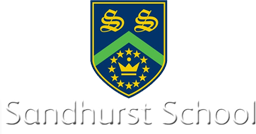Maths
Intent:
The Mathematics Department is dedicated to providing a high-quality education for all students. We aim to nurture a generation of confident and critical thinkers who possess a deep understanding and love for mathematics. We aim to empower students to not only master mathematical concepts but also develop the crucial skills needed to solve problems creatively and apply their knowledge to real-world situations.
Our ambition is to develop students’ skills and knowledge necessary to thrive in an increasingly mathematical world. We believe every student has the potential to succeed, regardless of their background or prior experience.
Further information
Our Curriculum
The maths curriculum is designed to deliver a coherent journey throughout the five years the students study with us, both acknowledging the prior learning of the students and the potential next steps of their mathematical journey.
Cross-curricular planning with science and geography aims to share common approaches to skills and knowledge, ultimately aligning our curricula and working towards a global learner.
By fostering a culture of curiosity, challenge, and support, our department is dedicated to empowering all students to become confident and proficient mathematicians, ready to face the challenges and opportunities that lie ahead.
Furthermore, we recognise the importance of the curriculum in addressing any existing equality gaps and actively work to ensure equal access to opportunities and resources for all students. We continually monitor student progress and implement targeted strategies to close any attainment gaps, ensuring all students have the opportunity to reach their full potential in mathematics. We tailor our KS4 curriculum to provide all students with the opportunity to leave Sandhurst school with a mathematics qualification.
Implementation: Teaching and planning
We are committed to providing an inclusive learning environment where all students feel respected, valued and empowered to participate. We encourage collaboration where students learn from each other and work together to solve problems, building communication, resilience and teamwork skills in the process. We offer enrichment opportunities both within the classroom and through extracurricular activities. We identify the needs of our SEND/SEMH students to best support them in their education, including differentiated instruction and collaborations with learning support specialists to ensure all students can flourish in mathematics. We are passionate mathematicians and we strive to instil this enthusiasm in our students, creating a positive learning experience for all.
Assessment
Students are assessed in a variety of ways within the classroom and our formal assessments at the end of every unit are used for an assessment of learning as well as an assessment for learning.
Our teachers regularly discuss the mathematics we teach and engage in professional conversations regarding the reasoning behind our methodology. We engage in professional development provided by NCETM and disseminate practices within our teams. Furthermore, we work alongside Reading University to host trainee teachers.
Building upon the foundations established during primary school is crucial for ensuring successful learning in KS3 mathematics. We conduct baseline assessments and utilise data to gain a comprehensive understanding of each student's individual strengths and areas needing development as they transition from Year 6 to Year 7. We bridge any potential gaps in foundational skills, by prioritising areas such as number sense, calculation fluency, and problem-solving strategies. We acknowledge that students arrive at KS3 with varying levels of prior attainment and learning styles. We create a differentiated learning environment that caters to individual needs and respects diverse learning pathways whilst ensuring consistency.
Impact
We develop students' fluency in basic mathematical operations and their ability to use them efficiently in various contexts. Alongside the key concepts of the National Curriculum, we equip students with critical thinking skills to analyse problems, identify patterns, and develop logical arguments. We encourage a growth mindset that enables students to tackle challenges with perseverance, explore multiple solutions, and learn from their mistakes. We want our students to see the value and relevance of mathematics beyond the classroom and its applications to other subjects they may study. Therefore, we prepare our students for their future success, whether it be further studies, higher education, or entering the workforce.

Curriculum time allocation
KS3 (Years 7, 8 and 9) - 7 hours per fortnight
KS4 (Year 10) - 8 hours per fortnight
KS4 (Year 11) - 9 hours per fortnight
Homework policy
Curriculum pathways
KS4 Personal Learning Checklists (PLC)
Maths PLC Year 9 Autumn Term 8300
Maths PLC Year 9 Spring Term 8300
Maths PLC Year 9 Summer Term 8300
Maths PLC Year 10 Autumn Term 8300
Maths PLC Year 10 Spring Term 8300
Maths PLC Year 10 Summer Term 8300
Maths PLC Year 11 Foundation Autumn Term 8300
Maths PLC Year 11 Foundation Spring Term 8300
Maths PLC Year 11 Higher Autumn Term 8300
Maths PLC Year 11 Higher Spring Term 8300
KS4 Exam Information
| Exam | Mathematics |
| Board | AQA |
| Spec | 8300 |
| Paper 1 |
Non-Calculator 1.5 hrs 33.3% |
| Paper 2 |
Calculator 1.5 hrs 33.3% |
| Paper 3 |
Calculator 1.5 hrs 33.3% |
Department Contact
Mrs E Bell
ebell@sandhurstschool.org.uk

